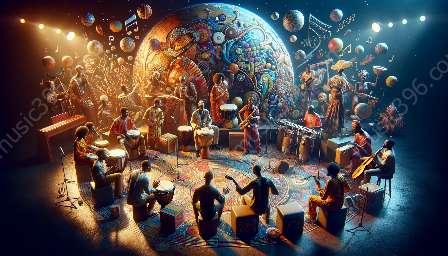Afrobeat music has served as a powerful vehicle for conveying social and political messages, addressing issues such as government corruption, human rights, social inequality, and cultural pride. Born out of the complex history of Africa and the social and political struggles faced by its people, Afrobeat has become a significant voice in advocating for change and raising awareness about pressing societal and political issues.
Understanding Afrobeat: A Fusion of Sounds and Messages
Afrobeat, as a music genre, originated in the 1960s and 1970s, mainly in Nigeria, under the influence of Nigerian musician and political activist Fela Kuti. Characterized by its fusion of traditional African rhythms, jazz, funk, and highlife music, Afrobeat embodies not only a unique musical style but also a potent form of expression.
Fela Kuti, often referred to as the pioneer of Afrobeat, used his music to challenge the oppressive Nigerian government, criticize corrupt political leaders, and advocate for the rights of the marginalized and oppressed. His songs were imbued with powerful messages that resonated with the struggles of the African people, calling for social justice, equality, and liberation.
Conveying Social and Political Messages
Afrobeat music is distinguished by its lyrical content, which often addresses socio-political issues with a blend of poignant storytelling, protest, and calls to action. The music serves as a platform to shine a light on the injustices and hardships faced by African communities, while also celebrating the richness of African culture and heritage.
Through compelling narratives and emotive performances, Afrobeat musicians convey messages of empowerment, resistance, and resilience. They highlight the need for societal change, the importance of solidarity, and the power of collective action in effecting meaningful political and social transformation.
Impact on Society and Politics
The influence of Afrobeat music extends beyond the realm of entertainment, transcending into the socio-political landscape. Its compelling messages have spurred conversations, catalyzed movements, and influenced public discourse, making it a powerful tool for advocacy and activism.
Afrobeat has become a unifying force, fostering a sense of solidarity among those who seek positive change and increased accountability in governance. It has inspired social movements, encouraged civic engagement, and amplified the voices of those who strive for a more just and equitable society.
Connection to Cultural and Political Movements
Afrobeat music has been closely intertwined with various cultural and political movements, contributing to their momentum and impact. It has served as a rallying call for resistance against oppressive regimes, a soundtrack for protests and demonstrations, and a catalyst for cultural revitalization and pride.
Moreover, Afrobeat has transcended geographical boundaries, resonating with audiences globally and fostering cross-cultural solidarity in the pursuit of social and political change. It has encouraged meaningful dialogue about the interconnectedness of global issues and the universality of the human experience.
Continued Influence and Relevance
As contemporary Afrobeat artists continue to carry on the legacy of their predecessors, the genre remains an influential force in addressing pressing social and political concerns. The music continues to evolve, adapting to modern contexts while staying true to its roots of advocacy, authenticity, and creativity.
Through innovative collaborations, impactful storytelling, and dynamic performances, Afrobeat artists uphold the tradition of using music as a means of expression and a catalyst for change. They continue to uphold the spirit of Afrobeat, amplifying voices, championing causes, and shaping the socio-political landscape with their artistry and activism.












































